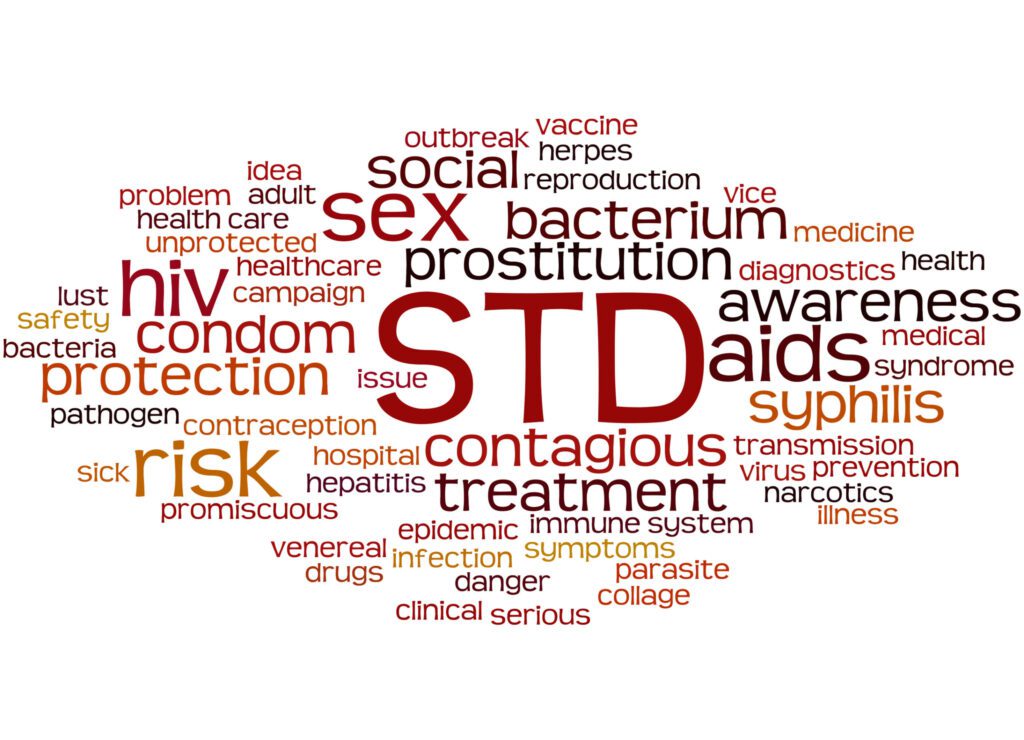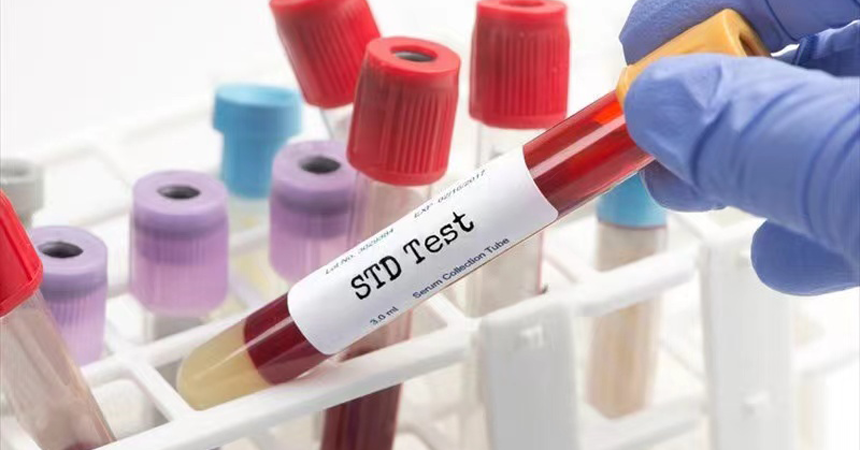The Impact of STDs on Mental Health: Addressing the Emotional Side of Diagnosis
According to the Centers for Disease Control and Prevention (CDC), there are approximately 20 million new cases of sexually transmitted diseases (STDs) each year in the United States. While the physical health consequences of STDs are well known, less attention is often given to the emotional impact of an STD diagnosis. In this blog post, we will explore the emotional side of an STD diagnosis, including common reactions, coping strategies, and the importance of seeking support.
STD Testing and Diagnosis
Getting tested for STDs is an essential part of sexual health maintenance. STD testing is important because some STDs may be asymptomatic, meaning that individuals may not experience any noticeable symptoms. Regular testing can help with early detection and treatment, which can prevent complications and further transmission of the infection.
The testing is available at various STD clinics and testing centers, including Hope Across The Globe. These clinics provide confidential and non-judgmental testing services, which can help remove the stigma associated with getting tested for STDs. Testing can include blood tests, urine tests, and swab tests, and patients can expect a comfortable and private environment to receive their results.

Emotional Impact of an STD Diagnosis
Receiving an STD diagnosis can be an emotional experience. Common emotional reactions to STD testing and diagnosis include shock, fear, anger, guilt, and shame. It is important to remember that these reactions are normal and that there is no reason to feel ashamed or guilty. Coping with an STD diagnosis can be challenging, but seeking emotional support from loved ones and healthcare providers can make a significant difference.
An STD diagnosis can impact an individual’s self-esteem and relationships. Individuals may fear rejection and judgment from partners and peers, leading to feelings of isolation and loneliness. Seeking support from loved ones and healthcare providers can help individuals cope with these feelings.
Common Mental Health Issues Linked to STDs
- Anxiety: Worrying about one’s health, the impact on relationships, and potential judgment from others can cause significant anxiety.
- Depression: Feelings of sadness and hopelessness may arise, especially if the individual feels isolated or unsupported.
- Low Self-Esteem: The stigma associated with STDs can damage an individual’s self-worth, leading to diminished self-esteem.
Support from Healthcare Providers
Healthcare providers play an important role in supporting individuals with an STD diagnosis. They can provide accurate information about the infection, address concerns about confidentiality and privacy, and provide treatment options and medication to manage symptoms and prevent further transmission.
Seeking treatment and medication for STDs can help reduce the risk of complications, prevent further transmission of the infection, and improve overall health and well-being. Concerns about confidentiality and privacy are common when seeking treatment for an STD. It is important to know that patient confidentiality is protected by laws and regulations, and non-judgmental and confidential healthcare services are available.

Coping Strategies for Mental Health and STD Diagnosis
Dealing with an STD diagnosis can be stressful and challenging. Here are some coping strategies that may be helpful:
Seeking Professional Help
One of the most effective ways to manage the mental health impact of an STD diagnosis is to seek professional help. Therapists and counselors specializing in sexual health can provide support and strategies to cope with the emotional burden. Clinics like Hope Across The Globe Jacksonville STD Clinic can also offer referrals to mental health professionals.
Building a Support System
Having a strong support system is crucial. Friends and family who offer understanding and non-judgmental support can make a significant difference. Online and in-person support groups can provide a sense of community and shared experience, helping individuals feel less isolated.
Educating Yourself
Knowledge is power. Educating yourself about your STD can reduce fear and anxiety. Understanding the condition, treatment options, and how to manage it can empower you to take control of your health. Reliable resources, such as those provided by Hope Across The Globe, can be incredibly helpful.
Practicing Self-Care
Self-care is essential for maintaining mental health. This can include:
- Physical Activity: Exercise can reduce anxiety and depression by releasing endorphins.
- Healthy Eating: Proper nutrition supports overall well-being.
- Mindfulness and Relaxation Techniques: Practices like meditation and deep-breathing exercises can help manage stress.
Communicating with Partners
Open and honest communication with sexual partners is crucial. Discussing your STD status can be challenging, but it’s necessary for mutual health and trust. Approach the conversation with honesty and compassion, and be prepared to provide information and answer questions.
Addressing and Reducing Stigma
Stigma is a significant issue for individuals living with an STD. It can lead to feelings of shame, and isolation, which can make it difficult to seek emotional and medical support. To reduce stigma, it is essential to educate the public about STDs and their impact on individuals’ lives. By educating people about STDs and encouraging open communication, we can reduce the negative impact of stigma.
Educating Others
One of the best ways to combat stigma is through education. By sharing accurate information about STDs, you can help dispel myths and misconceptions. This can reduce the stigma and encourage more people to seek testing and treatment.
Education can also help promote safe sex practices, including the use of condoms and regular STD testing. By promoting safe sex practices, we can help prevent the spread of STDs. And reduce the emotional and physical impact of an STD diagnosis.
Advocacy and Support
Getting involved in advocacy can be empowering. Organizations like Hope Across The Globe work to raise awareness and reduce stigma. Participating in community events and initiatives can provide a sense of purpose and connection.
Personal Empowerment
Empower yourself by focusing on your strengths and achievements. Remember that an STD does not define you. Celebrate your resilience and the steps you’re taking to care for your health
Receiving a diagnosis of a sexually transmitted disease (STD) can be a life-altering moment. The impact is not only physical but can also take a heavy toll on mental health. The stigma attached to STDs often exacerbates this emotional strain, making it crucial to address both aspects simultaneously. In this post, we’ll explore the connection between mental health and STDs, and provide practical strategies to cope with the diagnosis and associated stigma. For residents of Jacksonville, Florida, resources like the Hope Across The Globe Jacksonville STD Clinic can offer support and treatment options.
Resources in Jacksonville, Florida
Residents of Jacksonville, Florida, have access to a variety of resources to help manage the mental health and physical aspects of an STD diagnosis. Hope Across the Globe Jacksonville STD Clinic offers confidential testing and treatment services. Additionally, they can provide referrals to mental health professionals who specialize in sexual health issues.
FAQs
1. How can I find support after an STD diagnosis?
Finding support can involve contacting friends and family, joining support groups, and seeking professional counseling. Hope Across the Globe Jacksonville STD Clinic can also offer resources and referrals.
2. What should I do if I feel overwhelmed by my diagnosis?
If you’re feeling overwhelmed, it’s important to seek professional help. A therapist or counselor can provide strategies to manage your emotions. Self-care practices and building a support system can also help.
3. How can I reduce the stigma I feel about my STD?
Reducing stigma involves educating yourself and others, seeking support, and participating in advocacy. Remember that your condition does not define you, and focus on your strengths and achievements.
4. Are there local resources in Jacksonville, Florida, that can help me?
Yes, Hope Across the Globe Jacksonville STD Clinic offers testing, treatment, and referrals to mental health professionals. We also provide educational resources and support.
Conclusion
An STD diagnosis can have a significant impact on an individual’s mental health, causing emotional reactions such as fear. However, seeking support from loved ones and healthcare providers, as well as utilizing coping strategies such as exercise and therapy, can help individuals cope with the emotional impact of an STD diagnosis.
At Hope Across The Globe, we understand the emotional toll that an STD diagnosis can have on individuals. Our STD clinic provides confidential and compassionate testing and treatment for a range of STDs. We also offer counseling services to help individuals cope with the emotional impact of their diagnosis. By providing education, support, and quality care, we are committed to promoting the physical and emotional well-being of our patients. Remember, seeking help and support is a sign of strength. And at Hope Across The Globe, we are here to support you every step of the way.
Related Tag: HIV Clinic Jacksonville FL






